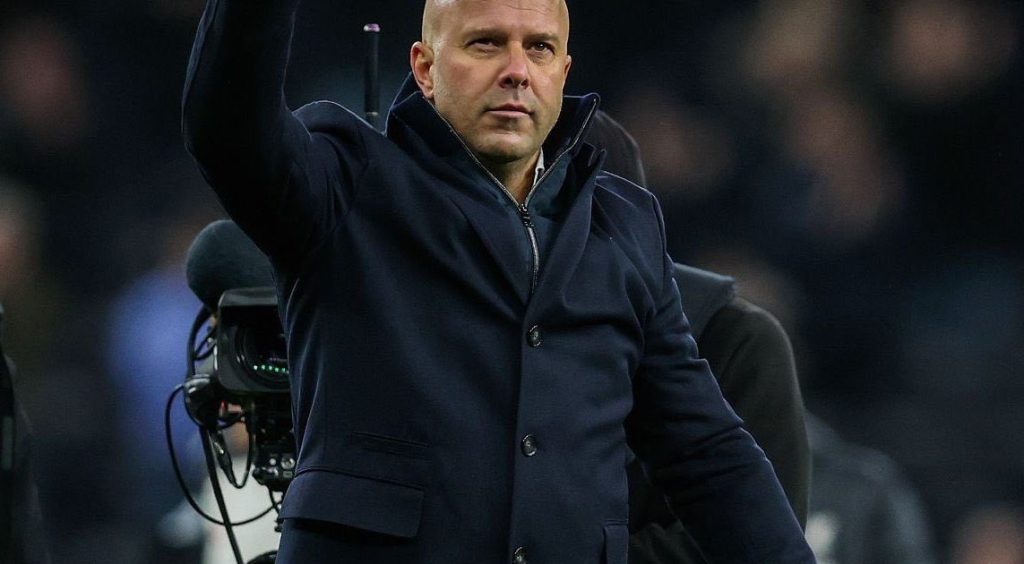Liverpool’s thrilling 3-2 victory over Newcastle United at St. James’ Park left manager Arne Slot questioning the nature of the contest, describing it as barely resembling a football match. The Reds secured their hard-fought win thanks to a last-gasp goal from 16-year-old Rio Ngumoha in the 100th minute, capping off a chaotic and dramatic encounter. Slot’s bewilderment stemmed from the fragmented nature of the game, characterized by a plethora of set-pieces, long throws, and fouls, significantly disrupting the flow of play. This tactical disruption, highlighted by Opta statistics revealing the ball was in play for a mere 40.8% of the match – the lowest in a Premier League game since February 2010 – left Slot pondering the strategic elements of the contest.
The match became a battle of attrition, with Newcastle’s spirited performance, despite being reduced to ten men, further amplifying the chaotic nature of the game. Liverpool initially capitalized on their numerical advantage, building a 2-0 lead. However, Newcastle’s resilience, coupled with their goalkeeper’s long throws and the frequent stoppages, neutralized Liverpool’s advantage, creating a tense and unpredictable atmosphere. This persistent disruption, with Newcastle using set-pieces and long throws as their primary attacking strategy, made it difficult for Liverpool to maintain control, leading to a nail-biting finish despite their numerical superiority.
Adding fuel to the already charged atmosphere was the ongoing transfer saga surrounding Alexander Isak, who was rumored to be seeking a move from Newcastle to Liverpool. This backdrop of speculation and potential transfer drama contributed to a feisty atmosphere both on and off the pitch, adding an extra layer of tension to the proceedings. The underlying tension between the two clubs regarding Isak’s potential transfer fueled the intensity of the match, setting the stage for a highly charged and emotionally driven contest.
This intensified atmosphere manifested in a series of physical challenges and contentious moments on the pitch, culminating in Newcastle’s Anthony Gordon receiving a red card for a reckless challenge on Liverpool captain Virgil van Dijk just before halftime. The game saw a total of 32 fouls, the highest in a Premier League game so far this season, highlighting the physicality and often disruptive nature of the contest. The combination of the Isak transfer saga, the frequent stoppages in play, and the numerous fouls contributed to a chaotic and fragmented match far removed from a fluid, tactical display of football.
Slot reflected on the difficulties his team faced, particularly in the first half, where they struggled to establish control despite Newcastle’s numerical disadvantage. He acknowledged the unexpected challenge presented by Newcastle’s tactical approach, with their goalkeeper frequently launching long throws into the box, negating the typical advantage of having an extra player. This tactic, combined with the constant stoppages, effectively nullified Liverpool’s numerical advantage, forcing them to adapt and grind out a result in a less-than-ideal playing environment.
Despite the challenging circumstances, Slot expressed satisfaction with his team’s resilience and ability to withstand the pressure. He praised their ability to weather the storm and eventually secure the victory, highlighting the importance of their mental fortitude in such a chaotic and unpredictable encounter. Winning in such a disrupted and fragmented game underscored the team’s resolve and their capacity to adapt to challenging circumstances, earning them a hard-fought victory in a match that tested their resilience and tactical flexibility. While the game was far from a classic display of football, the victory was a testament to Liverpool’s adaptability and determination.














